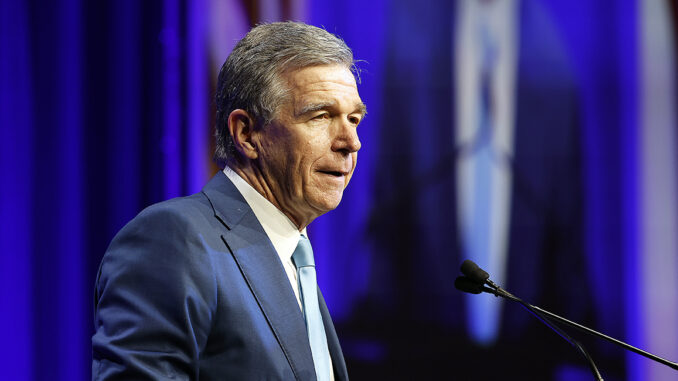
RALEIGH — House lawmakers overrode three more of Gov. Roy Cooper’s vetoes last week.
In early July, Cooper broke the 100 veto threshold on three bills: House Bills 155, 556 and 690.
On the last day of July, the North Carolina House overrode all three in votes mainly down partisan lines.
On House Bills 155 and 556, Democrats Carla Cunningham (Mecklenburg), Shelley Willingham (Edgecombe), and Michael Wray (Northampton) voted with Republicans to override.
One Republican, Rep. John Faircloth (Guilford), voted to uphold Cooper’s veto of House Bill 155.
Cooper claimed House Bill 155 “would allow certain off road vehicles to operate on four lane highways at speeds of up to 55 miles per hour.” While the legislation expands where some utility vehicles can operate, it does not allow them on four-lane highways at such speeds.
The governor argued in his veto message that House Bill 556 would make affordable housing harder to find for vulnerable populations by preventing local protections against income-based discrimination. He also expressed concerns about ambiguity in eviction order effectiveness and potential increased legal costs for renters. The bill does prohibit local ordinances requiring landlords to accept federal housing assistance and allow landlords to recover attorney fees in certain eviction cases, though with a fee recovery cap of 15%.
Willingham and Wray also voted in favor of overriding House Bill 690, which originally passed 39-5 in the Senate and 109-4 in the House. Except for Willingham and Wray, all of the Democrats who originally voted to pass the bill flipped their vote to uphold Cooper’s veto.
Under House Bill 690, the state is barred from accepting certain Central Bank Digital Currencies (CBDC) issued directly by the U.S. Federal Reserve or a federal agency in order to maintain state financial autonomy. In his veto message, Cooper called the bill “premature, vague and reactionary.”
In addition to completing overrides on the House bills, there are two more vetoed bills that originated in the Senate requiring action: Senate Bills 166 and 445.
If the five vetoed bills are fully overridden, the legislature will have successfully acted on all eight vetoes issued by Cooper during the short session. Over the course of Cooper’s two terms, the governor has issued 102 vetoes. His four predecessors who had veto power only issued a combined 35.
The General Assembly has overridden 48 of Cooper’s vetoes, failed to override another 16 and did not attempt an override on 36 bills.


